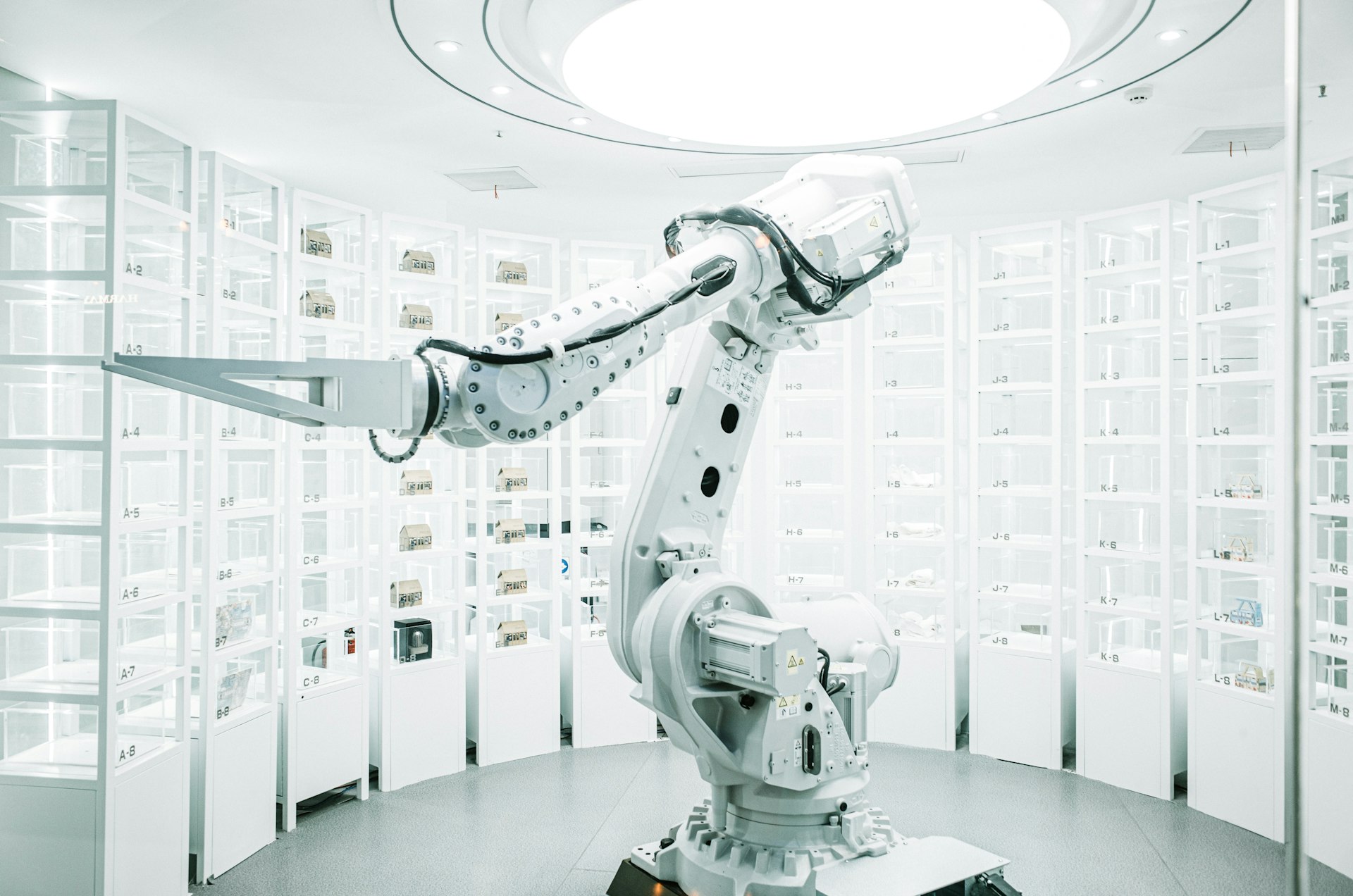How Biotechnology Is Powering Precision Medicine: Opportunities, Challenges, and Real-World Impact

Photo by Prasesh Shiwakoti (Lomash) on Unsplash
Introduction
Biotechnology is transforming healthcare by making precision medicine possible-an approach that tailors medical treatment to the individual characteristics of each patient. This article explores how biotechnology is enabling these advances, provides real-world examples, and offers practical steps for patients, providers, and industry professionals to access and implement precision medicine solutions.
Understanding the Role of Biotechnology in Precision Medicine
Biotechnology provides the scientific foundation for precision medicine by offering tools and technologies for analyzing genetic, molecular, and cellular data. This enables researchers and clinicians to develop targeted diagnostics and treatments based on an individual’s genetic makeup, lifestyle, and environment. For example, genetic sequencing and biomarker identification help pinpoint disease-causing mutations, while advanced drug development techniques allow for the creation of therapies that specifically target these mutations [1] .
Key Biotechnology Applications in Precision Medicine
Several biotechnology applications are at the heart of precision medicine:
1. Genetic and Genomic Testing
Biotechnology enables comprehensive genetic testing, such as screening for BRCA1 and BRCA2 mutations, which can identify individuals at high risk for certain cancers. This information allows patients and doctors to develop personalized prevention and treatment plans [1] .
To access genetic testing:
- Consult your healthcare provider to discuss family history and risk factors.
- Consider referral to a certified genetic counselor.
- Genetic testing services are available through major hospital networks and specialized labs; your provider can guide you to reputable options.
2. Targeted Drug Development
Biotechnology enables the creation of drugs that target specific genetic mutations or molecular pathways. Examples include trastuzumab for HER2-positive breast cancer and CAR-T cell therapy for certain leukemias and lymphomas. These treatments are more effective and often have fewer side effects than traditional therapies [1] [2] .
Access to targeted therapies:

Photo by L N on Unsplash
- Patients diagnosed with cancer should ask their oncologist about tumor profiling and eligibility for targeted therapies.
- Many cancer centers offer molecular diagnostic testing as part of standard care.
- Insurance coverage for these tests and treatments varies; check with your provider and insurer.
3. Pharmacogenomics
Pharmacogenomics studies how a person’s genes affect their response to medications. By utilizing biotechnology to analyze genetic profiles, clinicians can prescribe drugs that are more likely to be effective and avoid those that may cause adverse reactions [1] [5] .
Implementation steps:
- Discuss with your doctor whether pharmacogenomic testing is appropriate, especially if you have had unusual reactions to medications in the past.
- Some hospitals and clinics offer this testing as part of routine care for certain conditions.
Industry Examples: Biotech Companies Leading the Way
Major pharmaceutical and biotechnology companies are heavily investing in precision medicine. For instance:
- Novartis has developed next-generation sequencing tests to help select drugs based on genetic mutations.
- Pfizer is using biomarkers and advanced imaging in drug discovery for personalized therapies.
- BioNTech is partnering with governments to deliver personalized mRNA cancer immunotherapies [3] .
To learn more about these companies’ offerings, visit their official websites for the latest updates on clinical trials and approved products.
Tools and Technologies Making Precision Medicine Accessible
Biotechnology companies are leveraging cutting-edge tools to scale precision medicine, even with limited resources:
- Artificial Intelligence & Machine Learning: AI algorithms integrate genomic, clinical, and demographic data to recommend personalized treatments, reduce trial-and-error prescribing, and predict patient outcomes.
- Automated Workflows: Automation accelerates research, reduces costs, and brings new therapies to market faster [4] .
For professionals interested in implementing these tools:
- Explore open-source bioinformatics software and AI analytics platforms tailored for genomics.
- Attend industry conferences and workshops to stay updated on best practices and regulatory requirements.
- Consider partnerships with established biotech firms or academic research centers to access expertise and technology.
Real-World Impact: Precision Medicine in Practice
Precision medicine, powered by biotechnology, is making a real difference in the treatment of complex diseases:
- Oncology: Personalized cancer therapies have improved survival rates and reduced toxic side effects for many patients [2] .
- Chronic Diseases: Precision approaches are being applied to conditions like asthma, diabetes, and cardiovascular disease by identifying at-risk individuals and tailoring prevention or treatment plans.
- Infectious Diseases: During the COVID-19 pandemic, biomarkers helped guide treatment decisions and vaccine development [2] .
To benefit from these advances:
- Ask your healthcare provider about the availability of precision medicine services in your region.
- Some hospitals and academic centers offer clinical trials and research programs; inquire about eligibility and participation.
- If you are interested in contributing to research, consider joining national or regional genomics initiatives, which may be available through university medical centers or government health agencies.
Challenges and Considerations
Despite rapid progress, challenges remain in making precision medicine universally accessible:
- Cost: Advanced diagnostics and treatments can be expensive. Insurance coverage may vary, and out-of-pocket costs can be significant.
- Data Security: Protecting genetic and health data is critical. Patients should verify that providers follow recognized data security standards.
- Integration: Combining data from different sources and ensuring interoperability among platforms is complex and requires ongoing collaboration across the industry.
- Ethics and Equity: Ensuring that all populations have access to precision medicine is an ongoing challenge, with disparities based on geography, socioeconomic status, and healthcare infrastructure [2] .
Patients and providers can stay informed about these issues by following updates from leading medical organizations and government health agencies.
Practical Steps to Access Precision Medicine Advances
Here’s how you can explore and access precision medicine opportunities:
- Discuss your medical and family history with your primary care provider to determine if precision medicine approaches are appropriate for you.
- Request information on genetic testing, targeted therapies, and clinical trial participation from your healthcare team.
- For information on government and academic initiatives, search for national genome projects or clinical research programs through official health agencies or major university medical centers.
- Stay updated on new therapies and diagnostics by visiting reputable sources such as the National Institutes of Health (NIH) or the Centers for Disease Control and Prevention (CDC).
- When in doubt, ask for a referral to a specialist in medical genetics or precision medicine at your nearest comprehensive care center.
Conclusion
Biotechnology is the driving force behind the evolution of precision medicine, making healthcare more personalized, efficient, and effective. While challenges remain, ongoing advances hold the promise of improved outcomes for patients across a wide range of diseases. By taking proactive steps-such as discussing options with providers, seeking out genetic testing when appropriate, and staying informed about clinical innovations-individuals and professionals can fully participate in the precision medicine revolution.
References
- [1] Sequence Biotech (2023). Biotech’s Role in Revolutionizing Precision Medicine.
- [2] Naithani, N. (2021). Precision medicine: Uses and challenges. PMC.
- [3] Labiotech.eu (2023). Seven companies shaping the future of precision medicine.
- [4] Sanogenetics (2023). Tools and methods for biotechs to scale precision medicine.
- [5] Illumina (2023). Precision Medicine Applications – Approaches & Treatments.
MORE FROM 9scholarships.de













